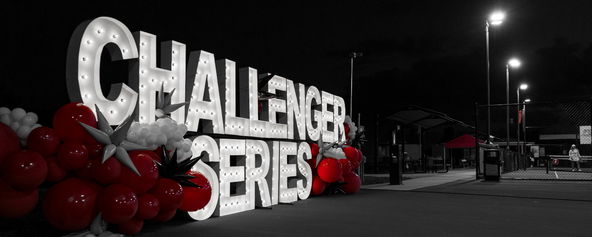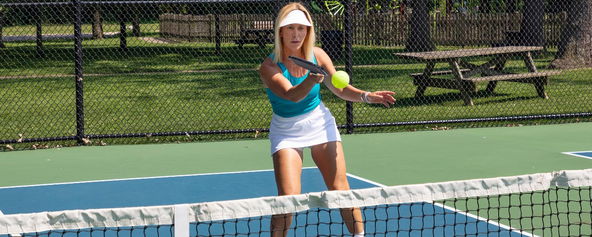
Where PPA rules differ from USAP rules
DALLAS, TX - The USA Pickleball Official Rulebook is arguably the most important written work in the sport. The 88-page document goes into the ins and outs of what exactly is allowed on the pickleball court, from rec play to tournament competition.
The PPA uses those rules exactly for amateur brackets at its events, but there are some distinct deviations from USAP in the rules for pro play.
Here’s an explanation of which PPA rules differ from the USAP rulebook, according to head PPA referee Don Stanley.
Service Lets
Serves that hit the top of the net and still land ‘in’ (called ‘lets’) are redone in PPA pro competition. In USAP rules, however, the returner must play the serve even if it hits the net before dropping in the court.
Drop Serves
Drop serves are not allowed in PPA pro competition. This is one of two types of legal serves, according to the USAP rulebook. When attempting a drop serve, the player drops the ball and lets it hit the ground before swinging to hit it. Only the volley serve, where players hit the ball out of the air before it hits the ground, is allowed in pro events. It’s not a fault if the pro player hits a drop serve, but the referee will tell them that serve isn’t allowed and they will have to hit another legal serve to start the point.
New serve rules in testing
Before the Masters, the PPA released some new service guidelines for pros that would be beta tested at the first event of the year.
The main gist of the new guidelines is that the ball must be dropped from below the top of the hip. Other guidelines that follow naturally from this are that the ball cannot be thrown upwards and that it must leave the hand in a downward motion.
These rules caused a stir in Palm Springs, especially in the qualifying rounds. According to Stanley, 72 service faults were called on Tuesday during those matches.
They will continue to be used in a test capacity at next week’s Desert Ridge Open in Phoenix, AZ, with the added stipulation that each player receives one warning on the legality of their serve per match to give them the opportunity to adjust before their next violation becomes a fault.
An additional feature going into effect next week has to do with challenging serves. Players can challenge the legality of their opponent’s serve as long as they do so before the third shot of the point is hit. Regular challenge rules apply here, too, so the player issuing the challenge loses both the point and a timeout if they do so incorrectly.
Related articles

PPA Challenger Series to test narrowed singles courts at upcoming events
The new court dimensions will first be implemented at the Houston PPA Challenger in late February.
32 days ago
-Will Daughton

Understanding pickleball kitchen rules
Mastering the nuances of the non-volley zone can dramatically improve your strategy and performance
214 days ago
-Pickleball.com Staff

UPA-A implements rule on 'intentional or reckless' targeting above the shoulders
A comprehensive rule and penalty structure has been released.
370 days ago
-Pickleball.com Staff

PPA Tour rule changes for professional competition in 2025
The new year brings with it some new rules and regulations for pro competition on the PPA Tour.
404 days ago
-Will Daughton